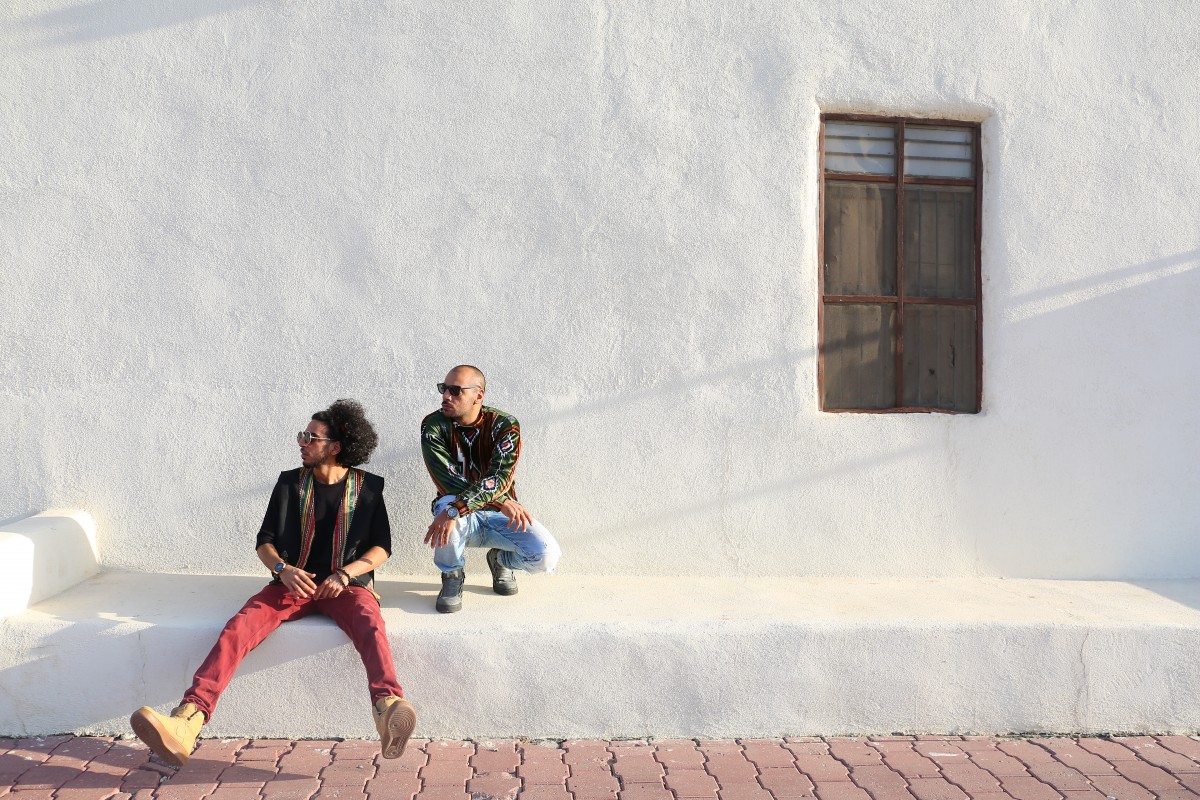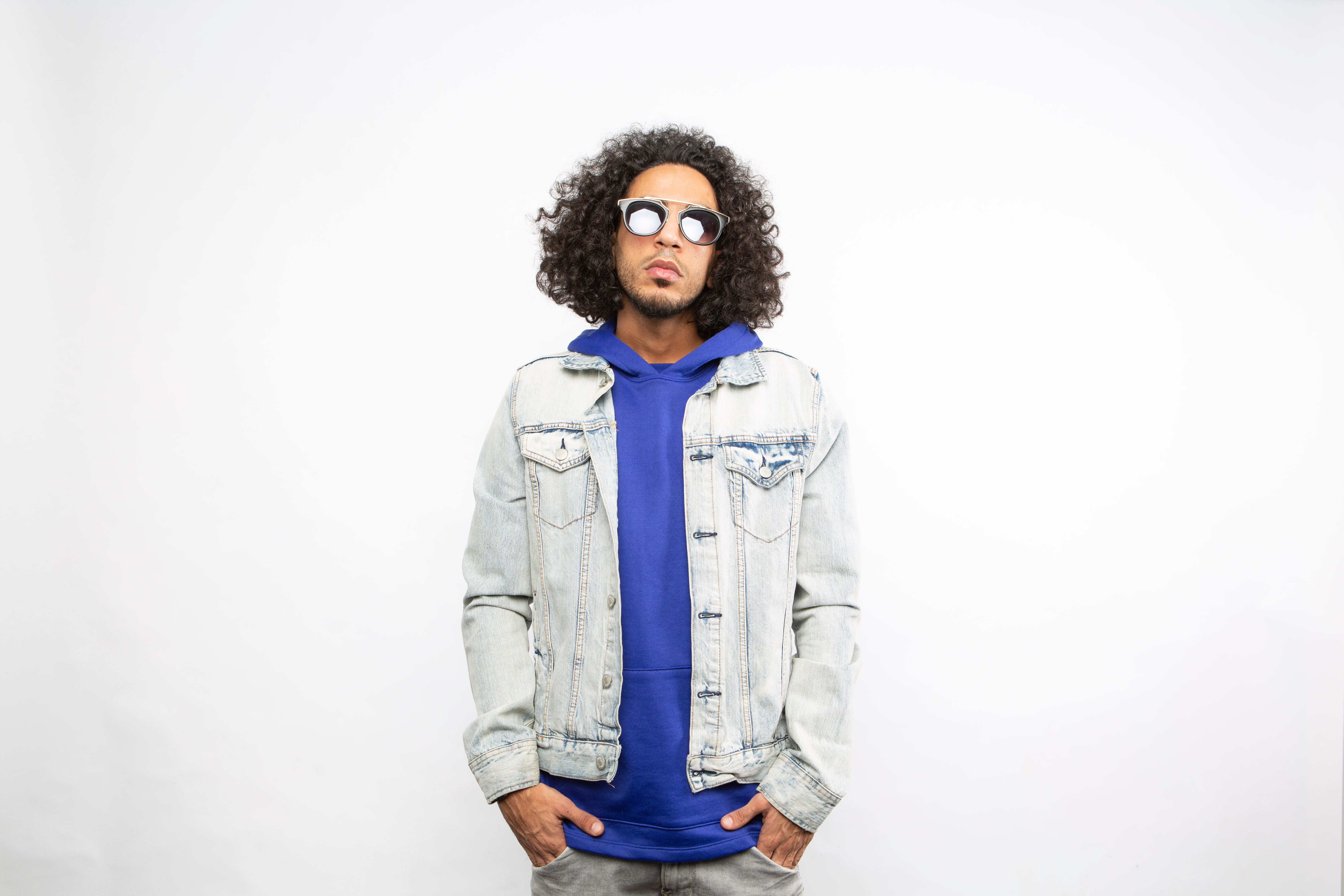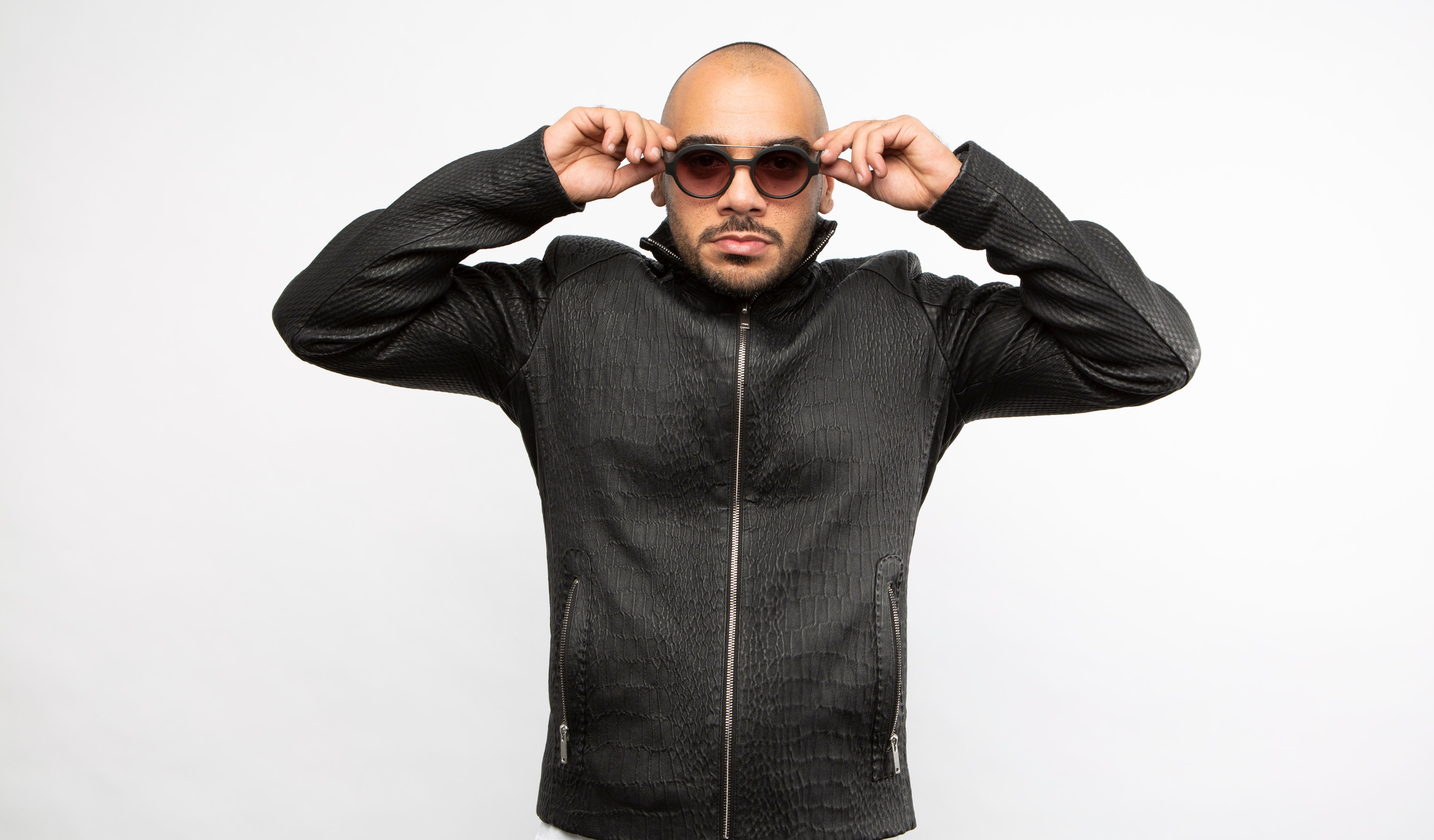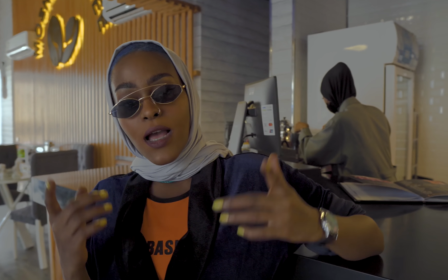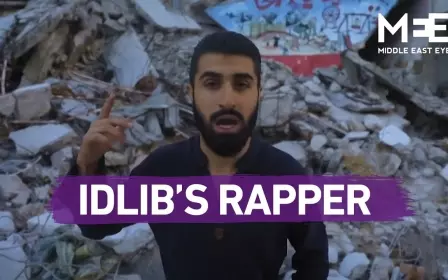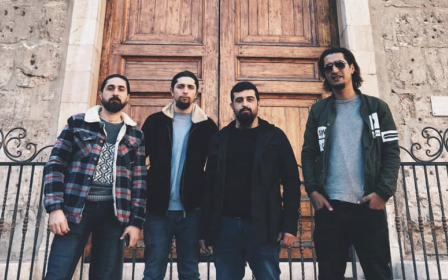Meet the hip hop duo bringing the Gulf sound to the world
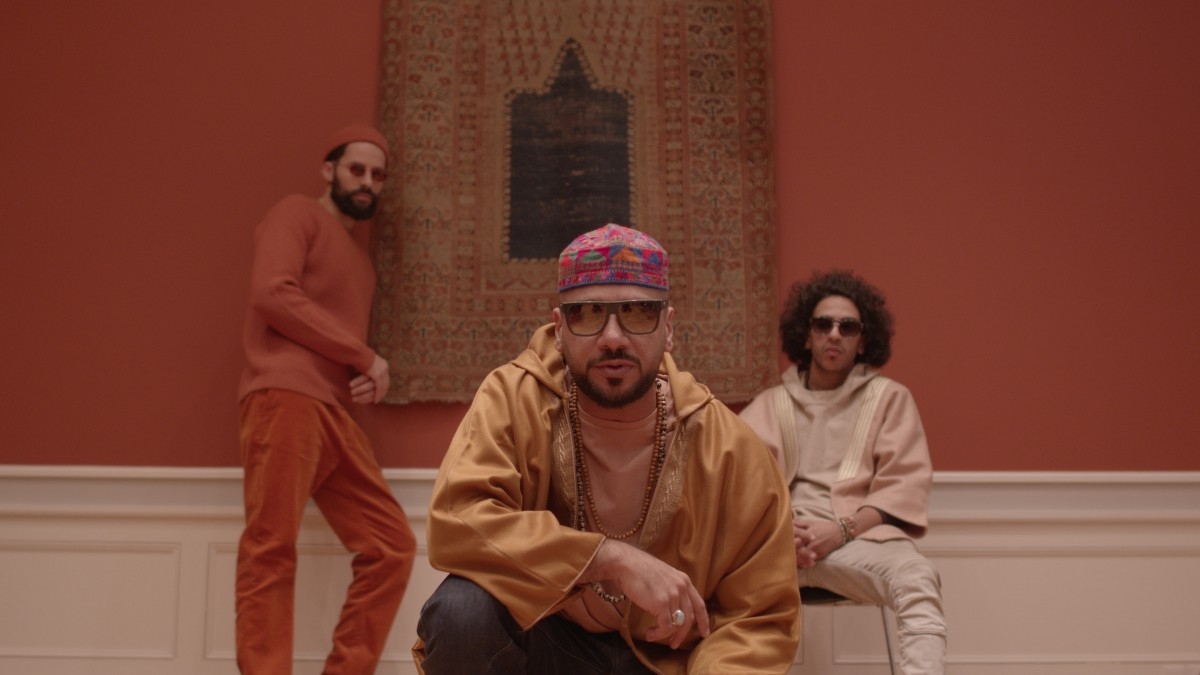
It's a year that has seen a torrent of bad news in the Middle East and around the globe. Yet this hasn’t stopped Kuwaiti hip-hop duo Sons of Yusuf from insisting that “2020 will be our year”.
And that's despite the fact that their debut album, Shaykh the World - which they have been gradually working towards since they set up as a band in 2012 - launched just three weeks before their country registered its first case of Covid-19 on 24 February.
Instead of dwelling on what they could not control, brothers Ya’koob and Abdul Rahman Al Refaie kept going, producing two music videos while Kuwait was on lockdown, including their latest, No Caliphates, featuring American legendary rapper Talib Kweli, which was released two weeks ago.
New MEE newsletter: Jerusalem Dispatch
Sign up to get the latest insights and analysis on Israel-Palestine, alongside Turkey Unpacked and other MEE newsletters
And in April, as the country was grinding to a halt, they decided to forgo plans for an elaborate music video and film for their song Mashallah, also featured on their debut album. Instead, they recorded an impromptu version at the beach house where they were quarantining.
“We were at the chalet, me and my brother, and we're like: ‘You know what? Let's try to shoot this’.” Ya’koob tells Middle East Eye. “We just shot. It was cool … we just put it out without even thinking.”
One of their most upbeat tracks, Mashallah (an Arabic expression used to convey joy, appreciation or thankfulness) is indeed a song for these times. A hymn to positivity, it is a reminder to appreciate the little things that we may take for granted.
If you got paid say Mashallah.
If you see a nice house say Mashallah…
Everytime I see the beauty of things that God made,
man, Mashallah
Just like the video, the song itself came about easily, as the 33-year-old Ya'koob recalls. “I went inside the booth, I just said ‘Mashallah’ and the song just came up," he says. "Mashallah is easy to sing… Anyone can sing Mashallah.”
‘Gulf Syndrome War’
This optimism has been with the duo since they were young men - and music itself was an early influence. Their father, Yusuf Al Refaie, is a jazz musician and owned one of the first record shops in Kuwait.
“Our father, Yusuf - the name of the band is a homage to him - was a musician and would take us to studios ever since we were little kids. We were about seven or eight when we first tried rapping or singing,” Ya’koob says.
At school, the brothers were known as “the rappers”. “We used to freestyle after school and in talent shows all through middle school and high school”, says Abdul Rahman, 30, also known as "Humble Abdul" for his trademark modesty.
But their childhood was also marked by a war that would eventually lead them to leave their old life behind. Ya’koob was three years old and Abdul Rahman a baby when Iraqi tanks rolled into Kuwait in the summer of 1990.
“I remember a lot of things, surprisingly,” Ya’koob says. “Sometimes I feel like it was a dream or a nightmare. But when I ask my family, they tell me it was real. It was like a dream. I remember the gunshots. I remember a lot of them. I was scared for my baby brother.”
The invasion makes its way into one of their early songs, Gulf Syndrome War, which features a radio news broadcast (“On the morning of August second, thousands of people in Kuwait City woke up to war”) in between the brothers’ lyrics.
Imagine what it's like being woken up to gunshots,
Late night, right before the break of dawn, lights out
It was just another day in the summertime
After the war, their family moved to California, where some of their relatives lived, and started school and a new life in LA.
‘No we don’t live in a tent, bro’
It was growing up in 90s LA that introduced them to the music that would influence their own. R&B, reggae and rap were all part of their soundscape, including songs by hip-hop artists such as Shafiq Husayn and Jay Electronica, who they would eventually end up collaborating with.
Originating in the marginalised African-American community of the Bronx in the mid-70s, hip-hop grew out of a call for social change and empowerment. It later spread to the rest of the planet, starting to gain popularity in the Arab world in the 90s.
In the past 20 years, new hip hop acts with roots in the Arab world began to emerge, such as Palestinian hip hop act DAM. Like Sons of Yusuf, Canadian-Iraqi artist Narcy and British-Palestinian Shadia Mansour also rap in both English and Arabic, helping to bridge between the two cultures.
Growing up in the US, Sons of Yusuf had to deal mostly with the misconceptions around Arabs and Muslims. Rapping became their way to communicate. “We always had to explain our culture to people who had a misunderstanding about this side of the world, especially after 9/11,” Ya’koob says.
Disheartened by the negative portrayal of Arabs in the media, they decided to use their music to share the richness of their heritage with the rest of the world. No Caliphates is one attempt to dispel the stereotypes:
Arab with an attitude dressed like Qadaffi
Asalaam Alaykum like Muhammad Ali
[…]
They label me a bogie man then they make a Muslim ban, damn
I’m not a terrorist I’m a tourist
“We definitely experience racism,” Abdul Rahman says. “In airports or with substitute teachers or bullies. The lyrics of No Caliphates came from first-hand experience.”
After completing their studies, and by now in their twenties, the brothers decided to move back to Kuwait. “We wanted to learn about our history, learn our language," says Ya'koob. "We came back and we really loved our culture.”
Their unwavering optimism led them to challenge any of the negative portrayals they'd encountered with humour. In their videos, the brothers like to have some fun: they drive sports cars around Kuwait, dressed in elaborate versions of traditional Khaliji dishdashas (ankle-length shirts) styled with branded accessories - trainers, jeans and sunglasses, a nod to the wealth of their Gulf upbringing and western influences on their lives. Their lyrics too slip seamlessly between English and Arabic.
“Sometimes when we had to explain to neighbours or friends in school that we are Arab or where Kuwait is on the map, they’d automatically think we ride camels to school or live in tents,” says Abdul Rahman. “So we always had to explain to people ‘No that’s not Islam’ or ‘No we don’t live in a tent, bro.’”
Honouring their heritage
Back in Kuwait, the more they learned about their heritage, the more they fell in love, learning about the country’s maritime history from their grandfather, who had once been a pearl diver.
“When I sit with my grandfather and he tells me all these stories, it's very interesting to know the historical side of Kuwait and how it changed, overnight, you know, with the oil,” Ya'koob says.
This all makes its way into their song Diving for Pearls:
Back in the day my grandfather was a pirate
Looking for pearls and rubies and gold and diamonds
[…]
We had lungs like aquamen
Diving hundreds of feet deep with no oxygen
And their music is embedded with historical references, from lyrics inspired by Islam’s Golden Age (8th-14th century) to the beauty of the Arabic language: "You say 'Hallelujah' we say 'Alhamdulillah'."
“The first university ever was started by Muslim women in Morocco, for example. The first to ever make medicine was Ibn Sina,” Ya’koob says. “Fashion, the music, the African embroidery, Arabic calligraphy… We feel like it's almost being forgotten and we had to honour that in some way.”
Religion and Islam also feature in their music. One of the most powerful tracks of the debut album is People of the Book, born out of the desire to tackle topics like racism and misunderstandings about Islam.
“We really wanted people to know that we all have the same message,” Ya’koob says. “And that all of the holy books came from the same God, that Muslims believe in the Bible and the Torah as they believe in the Quran and the prophets.”
The lyrics to People of the Book, playing on the classic Muslim hymn, or nasheed, are sung along a slow piano-driven track with Isam B, formerly with Danish hip hop band Outlandish.
The brothers even travelled to Denmark to meet different faith leaders - an imam, a priest, a rabbi, a Buddhist monk and a Sikh granthi, who are all featured in the music video: “We have to learn from one another and appreciate each other as people.”
Ambassadors of Arab culture
They’ve come a long way since their after-school freestyling. Their videos receive millions of hits on YouTube, including their 2014 track Hala (which means "hello" or "welcome" in Gulf dialect) that was shot around Kuwait city. Global hip hop platform HHGA (Hip Hop Golden Age) listed their album as one of the best hip hop albums of 2020, calling Shaykh the World “a breath of fresh air”.
And they’ve now set up their own record label to sign new artists, a music production company and, soon, a clothing line that marries urban and Gulf influences.
Today, the duo like to see themselves as ambassadors of Arab culture. While they could have released an album earlier, they were keen to build up their name first and help ease their audience into their version of Arab-influenced hip hop, especially as rap is still a relatively new concept in the Gulf.
Of the scene in the Middle East, Saudi Arabia's first hip hop radio host Hassane Dennaoui, better known as "Big Hass", says: "It is so diverse and can't be summarised or contained - you got the North African scene, which is blowing up with big numbers and a huge turnout. We have the scene in the Levant areas, where it's focused on social/political issues.
"And then you've got the Gulf scene, which is starting to get an identity because for the longest time it was based on 'copy-paste' culture and now is starting to shape up. Not to forget Sudan, which is in its own lane making music that's undeniably incredible.
"[Sons of Yusuf] of course represent Kuwait. But also because they lived and studied in the US, that makes them a 'bridge' between the East and the West, which is something that is always needed," Big Hass continues. "I do think they have a big role, especially in letting the West know more about our Arab region."
“When we came back to the Middle East," says Abdul Rahman, "our plan was to educate people on hip hop music 'cause we loved it so much and it became our life. Also, we wanted to come up with a new sound in the music scene in the Arab world.
"Really, we have been on this music journey all throughout our lives and we are still going through it, we are still learning and expanding. It never stops.”
And it seems there is an appetite for their brand of optimism.
Their 2018 hit One Time - a call for people to make the best of a life we only have one chance at - jumped to number one in Kuwait and went viral around the Gulf. The single was also played on radio stations in Europe, the US and North Africa.
“If we look back ten years ago this was a dream, having artists like Talib Kweli, Jay Electronica, Cyhi the Prynce, Terrace Martin and more all featuring on our album,” Ya’koob says.
And while the world waits for pandemic-related restrictions to ease, the brothers stay positive and plan to keep making music to “spread peace and love”.
“We wanna help make a change, bring people together and inspire, especially the youth, the next generation," says Ya'koob. "We always remind each other and push each other forward. Inshallah [God willing], we're just getting started.”
Middle East Eye delivers independent and unrivalled coverage and analysis of the Middle East, North Africa and beyond. To learn more about republishing this content and the associated fees, please fill out this form. More about MEE can be found here.


